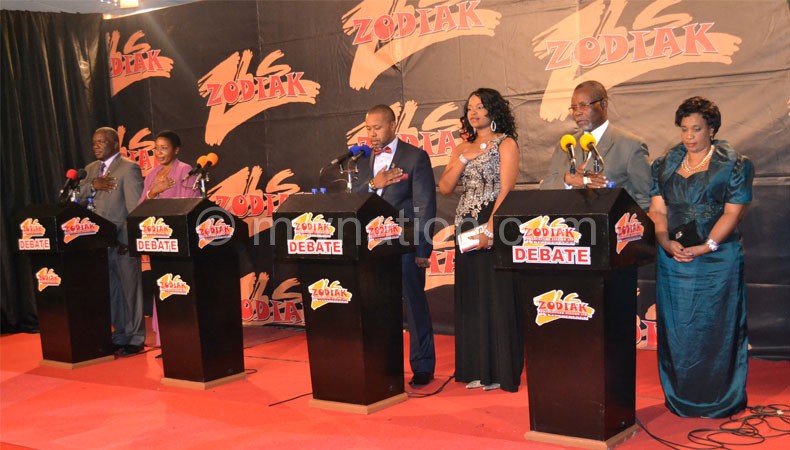Fighting the gay battle
It is Friday afternoon in Area 25, Lilongwe and Hope (not real name) is preparing for his job as a bartender at one of the famous drinking dens in the location. It promises to be one busy night for him.
After giving him a call to request an interview, I finally get to speak to him on this day.

“This is the way I was born. However, when I discovered I was gay, I could not tell anybody about my status. It took me time and courage to tell my friends and some of my relations that I’m gay,” he says.
For the next two hours, the 28-year-old, talks about his feelings for fellow men.
“I was 16 when I realised I was gay and it made me feel as though I had sinned against God. But later I accepted myself,” Hope reveals.
Fred, a close friend, is so far the only person who has accepted Hope’s status.
“My workmates have always questioned my association with fellow guys who are visibly gay. This was coupled with the fact that I did not show interest in women,” he said.
Hope says he previously worked as a lodge manager but lost his job because his boss suspected him of being gay.
Throughout the formal conversation, Hope never missed the opportunity to emphasise that he has no sexual desire for women because, “I am attracted to men.”
“I am in a polygamous relationship because apart from being married to a woman with whom I have an 11-months-old baby, I am in a relationship with my boyfriend,” he said with a smile, adding; “I love my wife as a person but not as a sexual partner.”
Hope says he knows it is bad, but he had to conform to societal expectations.
“I am bisexual because of the situation in the country, so she does not know about my being gay. Obviously, she would be disappointed if she found out,” he says.
Attempts to make the Malawi environment welcome to homosexuals have always been met by a cold shoulder. Just recently, at the first ever presidential running mates political debate in Lilongwe, all four major parties: People’s Party (PP), Democratic Progressive Party (DPP), Malawi Congress Party (MCP) and United Democratic Front (UDF) failed to convincingly state the best way forward on the controversial matter.
South Africa is one of the safer places to be if you are gay on the African continent. It was the first country in the world to have a constitution that outlaws discrimination based on sexual orientation and the fifth to allow gays to legally marry. While traces of discrimination still exist, Hope craves for the day when Malawians will do away with their homophobia.
“Many of us live in areas where our neighbours, friends and family do not understand us. They do not understand that love knows no gender. This ignorance turns into fear and fear turns into anger,” Hope says.
He says it is time society changed how it views gay people.
“We need to stop the bullying. To do this, we need to extinguish the anger. To do this, we need to confront the fear. And finally, we need to educate our friends and neighbours, and help change their perceptions,” he reckoned.
Acceptance is the key to having homosexuals open and talk about who really they are, according to Sociologist Charles Chilimampunga.
“Gays need to be open and be bold to talk about who really they are to their partners and relations. Living a lie is not helpful because truth will eventually come out. The best relations can do if one comes open is to be supportive,” he explained.
Studies indicate that many gays suffer psychological stress due to the huge effort they have to employ in order to remain in the closet, according to College of Medicine psychologist Chiwoza Bandawe.
“The homophobia means they are constantly vigilant about being discovered and at times have to pretend and bear the homophobic stories, comments and jokes that their friends may tell against gays.
From a mental health perspective, the stress of stigma takes its toll.
“Many gays also suffer from minority stress, a condition where the anticipated social rejection causes much stress on the gay person.
“Many gays would want to come out and be open but the stigma, judging and condemning of society leads many to continue to hide their orientation,” says Bandawe.
Sexual minority rights activist from the Centre for the Development of People (Cedep), Rodney Chalera, says a homophobic environment is still influencing people’s attitudes despite Malawi making some strides on homosexuality issues.
“There is a lot of debate going on in the country both pro and against homosexuality. This is creating an atmosphere for people to gain knowledge on the matter. People are able to get the messages but for them to accept that gays have been and will always be there, remains a big problem.
“There are government programmes that targeting homosexuals in areas such as HIV and Aids, meaning it recognises the existence of men who have sex with men, but now time has come for the country to have laws,” he explained.
While it is easy to tell when some people are gays, others do not easily show.
“Though I am gay, I still walk, talk, look and act just like any straight guy you see out there, probably even more masculine than most. Except my sexual attraction is with the same sex,” Hope explained.





